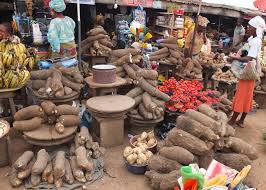In March, Nigeria’s inflation continued to rise despite central bank rate hikes intended to slow it down, hitting a 28-year high of 33.20% in annual terms due to rising food and energy prices.
According to the most recent data available from the National Bureau of Statistics, consumer inflation has increased for the fifteenth consecutive month. In February, it was 31.70%.
Millions of people in Africa’s most populous and economically significant country are struggling to satisfy their basic requirements due to inflation, which has not been this high since early 1996.
Laptops 1000Food and non-alcoholic drinks, according to the statistics office, were the main causes of the inflation increase.
Food inflation increased from 37.92% a month ago to 40.01% year over year.
President Bola Tinubu’s measures in his first year of office, which included twice devaluing the naira and ending an expensive fuel subsidy, have put pressure on prices.
Additionally, the government recently raised the cost of power for users who utilize the most.
To assist low-income households, Tinubu’s administration started supplying 42,000 tonnes of grains, including corn, sorghum, and millet, last week.
To curb pricing pressures, the central bank has hiked interest rates twice this year. As a result, it anticipates that inflation will start to decline in May.




















